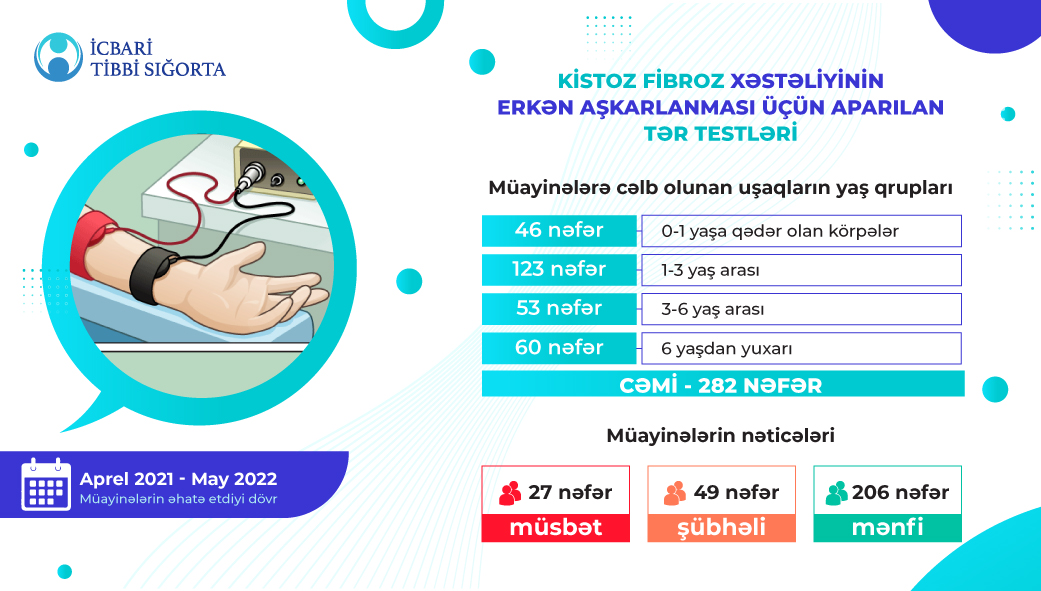14 June 2022 14:27
Screenings conducted to detect cystic fibrosis in children
For the purpose of the early diagnosis of cystic fibrosis, 282 sweat tests were conducted among children from April 2021 to the end of May 2022 according to doctors’ prescriptions. Children at early stages of development were involved in this examination provided by the Benefit Package of mandatory health insurance. Of those who took part in the sweat test, 46 were babies under 1 year old, 123 were between 1-3 years old, 53 were between 3-6 years old, and 60 were children over 6 years old.
During the examinations, 27 children had positive test results, 49 children had suspicious results, and the results of 206 children were negative. Children diagnosed with cystic fibrosis are registered at the Cystic Fibrosis Center of the Children's Clinical Hospital. Here, they receive regular doctor check-ups for nutritional, physical development, and respiratory indicators. Currently, 43 children diagnosed with cystic fibrosis are registered in the Center.
It should be noted that the sweat test is currently being conducted at the Scientific Research Pediatric Institute and the Children's Clinical Hospital named after K.Y.Farajova in Baku under the authority of TABIB. Cystic fibrosis is a hereditary disease caused by metabolic disorders. The symptoms of this disease that can be observed in the early period of the baby's life include long-lasting icterus in the newborn, prolapse of the rectum, chronic diarrhea, cough, shortness of breath, pneumonia, salty taste to the skin, retardation of physical development, and more. The symptoms of the disease are different in preschool and school-age children and teenagers.
According to Azer Ahmadov, pediatrician and deputy director of the Scientific Research Institute of Pediatrics named after K.Y.Farajova, early detection of cystic fibrosis, which is a congenital and hereditary disease, is very important: "Early diagnosis prevents the aggravation of the disease, and timely treatment can achieve positive clinical results and improve the quality of life of patients, help to reduce the number of cases of disability among children, and prolong their life. The sweat test is an examination method that is considered as the ‘gold standard’ in the world in the detection of cystic fibrosis disease. If family members are carriers of cystic fibrosis, or if they have symptoms of this disease, a newborn sweat test should be performed after two weeks. The diagnosis is based on measuring the concentration of chloride in sweat. The examination lasts 15-20 minutes and is completely painless. In cases with suspicious results, additional examinations are conducted."
In addition to the sweat test related to cystic fibrosis, the Benefit Package includes a number of other diagnostic examinations. This includes chest radiography, ultrasound examination of internal organs, spirometry, bronchoscopy, computer tomography of the chest, general analysis of blood, biochemical analysis of blood, bacteriological examination of sputum, and other medical services. In addition, complications of cystic fibrosis requiring inpatient therapeutic treatment are also covered by the Benefit Package. At the same time, mandatory health insurance also provides a wide range of antibiotics, chest physiotherapy, and vitamin therapy used for the inpatient treatment of cystic fibrosis patients.
It should be stated that early diagnosis of cystic fibrosis among newborns is also carried out through neonatal examinations (i.e., screenings) as part of the "State Program for Improving the Maternity and Child Health for 2014-2022." This examination carried out at the Scientific Research Institute of Obstetrics and Gynecology ensures the early detection of diseases in newborns such as cystic fibrosis, phenylketonuria, galactosemia, adrenogenital syndrome, and hypothyroidism.
News
İcbari tibbi sığorta ilə 182 000-dən artıq doğuş aparılıb
16 July 2024 11:10
Diz oynağının endoprotezləşməsində İsveçrə istehsalı protezlərdən istifadə olunur
12 July 2024 10:42
Kəskin orta otitin cərrahi müalicəsi icbari tibbi sığorta ilə qarşılanır
09 July 2024 11:11
Tiroidektomiya əməliyyatı icbari tibbi sığorta ilə ödənişsizdir
05 July 2024 10:25
İcbari tibbi sığorta ilə qasıq yırtığı açıq və laparoskopik üsulla icra olunur
01 July 2024 15:18
İcbari Tibbi Sığorta üzrə Dövlət Agentliyinin nümayəndə heyəti Yaponiyaya işgüzar səfər edib
28 June 2024 10:51
İcbari tibbi sığorta ilə 540 splenektomiya əməliyyatı icra olunub
24 June 2024 14:52
Zaur Əliyev Goranboy şəhərində vətəndaşları qəbul edib
21 June 2024 17:00
İcbari tibbi sığorta uşaqlığın çıxarılması əməliyyatını qarşılayır
21 June 2024 10:57
Agentlik, TƏBİB və Ankara Universiteti üçtərəfli anlaşma memorandumu imzaladı
14 June 2024 14:49










